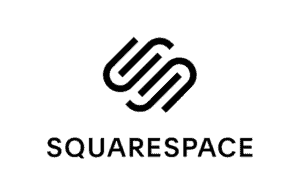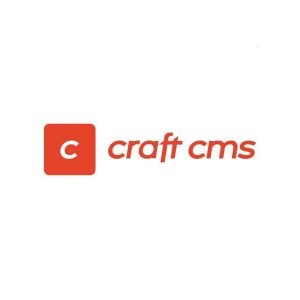Which eCommerce platform is best for SEO? 11 Best in 2023
Discover which eCommerce platform is best for SEO in 2023. Boost your online store’s visibility, traffic, and sales.
Kicking off the SEO and Ecommerce Conversation
Choosing an ecommerce platform is much like selecting the best football boots. You’re after a perfect fit, performance-enhancing features, and a design that’ll make you stand out on the field.
But, where does SEO fit into this scenario?
Much like the studs on a boot provide better grip, SEO boosts your online visibility. Ti makes sure your business doesn’t slip in the race for customers.
So, which ecommerce platform is best for SEO in 2023? Fear not, you’re in the right place. We’re about to embark on a journey. A comparison adventure, unearthing the top 11 platforms that blend ecommerce functionality and SEO prowess like tea and biscuits.
From their SEO features to real user experiences, we’ve got it all covered. Ready to take a deep dive into the world of ecommerce SEO? Let’s start!
Table of Contents
Why SEO Takes the Throne in Ecommerce
Running an ecommerce business without a robust SEO strategy is like setting sail without a compass. You might still be moving, but will you reach your desired destination? Unlikely.
SEO is the compass that guides your online store, helping it cut through the vast sea of the internet, straight towards your customers.
With SEO, you get improved visibility, meaning more potential customers see your ecommerce store. Every time someone searches for products you sell, a well-optimised store ranks higher.
You’re no longer a tiny stall in a mammoth digital shopping mall. You’re the flashy storefront, drawing customers in. More visibility equals more traffic, which, when combined with an effective user experience, translates into higher sales.
Remember, the best product in the world is of no use if nobody can find it.

Selecting Your Ecommerce Platform: An SEO-focused Approach
Choosing an ecommerce platform is like buying a new home for your online business. It’s a significant decision, and SEO should be a crucial consideration in making it.
Just like you wouldn’t buy a home without running water, don’t pick an ecommerce platform that doesn’t offer SEO-friendly features. Look for one that gives you control over SEO elements – title tags, meta descriptions, and URL structure.
Site speed is another vital factor; no one enjoys hanging around for a slow-loading website, not least the impatient Google crawler.
Mobile optimisation is no longer a bonus; it’s a necessity. With more people shopping on their phones, Google rewards mobile-friendly ecommerce websites with higher rankings.
So, your platform must deliver an equally stunning, user-friendly experience on mobiles as on desktops. These factors might seem minute, but in SEO, it’s the little details that make a big difference.

Examining Ecommerce Platforms: An SEO-Centric Comparison
Just as no two businesses are identical, ecommerce platforms too, have their unique strengths. The key is to find one that best aligns with your business’s SEO needs.
Here’s our top 11:
The grandmaster of ecommerce, business owners love Shopify for its user-friendly interface. It’s like your favourite cup of tea, easy, comforting, and it just does the job.
With built-in SEO features, editable title tags, meta descriptions, and URL structures, it lets you tweak each product page for SEO.
However, a word of caution; while Shopify ticks most boxes, it falls short with its rigid URL structure, not ideal for SEO.
Nonetheless, we like Shopify a lot for its SEO-friendliness. We get great results for our clients and their SEO.

WooCommerce is a versatile beast, a plugin that transforms your WordPress website into a full-fledged ecommerce store. It’s as if you’ve fitted your car with a rocket engine.
WooCommerce inherits WordPress’ SEO strengths, with extra ecommerce features. You’ve got complete control over your SEO, but remember, with great power comes great responsibility.
It’s not as user-friendly as Shopify, and you might need a bit of tech savvy to make the most of it.

WooCommerce is a versatile beast, a plugin that transforms your WordPress website into a full-fledged ecommerce store. It’s as if you’ve fitted your car with a rocket engine.
WooCommerce inherits WordPress’ SEO strengths, with extra ecommerce features. You’ve got complete control over your SEO, but remember, with great power comes great responsibility.
It’s not as user-friendly as Shopify, and you might need a bit of tech savvy to make the most of it.

Magento is like the sturdy oak tree of ecommerce platforms; it’s solid and reliable. Its open-source version provides complete control over your SEO, including custom URLs.
But beware, much like climbing an oak tree, Magento’s steep learning curve can be a challenge for beginners. We find Magento one of the hardest eCommerce platforms to get results from our SEO work.
And while it’s free to use, the costs of hosting and professional maintenance can add up.

Wix is a nifty DIY kit for building ecommerce websites. Known for its intuitive design features, it also provides SEO essentials.
Wix’s user experience is excellent, and it offers automatic SEO to get your ecommerce store off the ground. We didn’t like it because of its URL structure rigidity.
However, for more SEO-intensive ecommerce sites, Wix might seem a little basic.

Squarespace is like the elegantly designed coffee table book of ecommerce platforms.
Beautiful, yes, but is it functional for SEO?
Well, it does have all the basics covered – mobile-friendly, SSL certificates, clean URLs, and even the ability for a 301 redirect. We’ve got great SEO results for clients using Squarespace.
However, its ecommerce capabilities aren’t as comprehensive as others on this list.

Volusion is the veteran in the room, having been around since 1999. This hosted ecommerce platform gives you built-in SEO tools, Google Analytics integration, and more.
However, the downside of Volusion is its lack of a blogging feature, a key strategy for many businesses’ SEO efforts.

Weebly is a bit like the friendly neighbour of ecommerce platforms. Easy to use and simple to understand, it offers decent SEO features like meta descriptions, custom URLs, and more.
It’s a good option for small businesses but might lack advanced SEO tools that larger, more SEO-focused businesses would prefer.
However, you’ll get better results with platforms like Shopify.

Craft Commerce is the custom-made suite of ecommerce platforms – sophisticated and tailored to your needs.
As a premium solution, it offers strong SEO capabilities, including auto-generated sitemaps and custom meta tags. We have clients using Craft. It’s a nice platform, but it’s not great for some SEO features you need, particularly Schema Markup.
However, such sophistication comes with a higher price tag and may be more suitable for larger businesses with a sizeable budget.

OpenCart is the convenient potluck dinner of ecommerce platforms – free and open-source with a variety of SEO-friendly features.
These include multi-language capabilities and a broad range of plugins for customization.
However, bear in mind that its free price tag does come with the hidden cost of needing technical skills to maximise its potential.
We know web designers who have real problems working with OpenCart. It does take a lot of skill to understand it and make it work.

Formerly known as 3dcart, Shift4Shop is a feature-rich platform that’s a bit like finding an unexpected tenner in your pocket – surprising but welcome.
It boasts of all essential SEO features like custom URLs, 301 redirects, and automatic sitemaps.
The platform also includes AMP for product pages to boost mobile SEO.

AI and Machine Learning: The New Game-Changers for Ecommerce SEO
AI and machine learning are like the precocious children of the digital world, continually learning and transforming the landscape.
They’re particularly promising for SEO, as they can help improve user experience and optimise content for search intent.
As of now, not many platforms are fully harnessing AI and machine learning for SEO, but the future looks promising.
So, keep an eye out, as this could be a game-changer for SEO for ecommerce.
Mastering SEO: Top Practises for Your Ecommerce Site
Regardless of the platform, certain SEO best practises apply to all ecommerce websites.
These are your cornerstones, the bread and butter of your SEO strategy. Pay attention to your site architecture; a well-organised, user-friendly ecommerce site can earn you brownie points with both customers and search engines. Write engaging, keyword-rich content for your product descriptions and blog posts.
Prioritise mobile optimisation, because for Google, mobile-first is the new normal. Don’t neglect your images; use descriptive file names and alt tags.
And lastly, remember to create unique meta descriptions and title tags for every page. They’re like the wrapping paper for your content – they need to be attractive and inviting.
Hear it From the Users: Real-life Ecommerce SEO Experiences
You wouldn’t buy a car without a test drive, right?
So, why choose an ecommerce platform without hearing from those who’ve driven it?
Real user reviews and experiences provide invaluable insights into a platform’s strengths and weaknesses, straight from the horse’s mouth.
This feedback can be a treasure trove of information when deciding which platform best suits your SEO needs.
Your Go-to Checklist for Optimising Ecommerce SEO
To wrap up, here’s a handy ecommerce SEO checklist. It’s your guiding light, making sure your ecommerce platform ticks all the right SEO boxes.
This list will guide you through the key points to consider. From choosing an SEO-friendly ecommerce platform to implementing effective SEO strategies for your online store.
- Keyword Research: Identify relevant, high-traffic keywords for your product descriptions, blogs, and page titles.
- Site Structure: Organise your website in a user-friendly manner. Clear navigation aids both users and search engines.
- On-page SEO: Use targeted keywords in title tags, meta descriptions, and content. Optimise images with alt text.
- Mobile Optimisation: Make sure your site is responsive and user-friendly on all devices.
- URL Structure: Use SEO-friendly URLs. Include targeted keywords and avoid complex strings of characters.
- Site Speed: Improve your site’s load speed. Faster sites rank better on Google.
- Secure Site (HTTPS): Switch to HTTPS for a slight ranking boost and improved user trust.
- Content Quality: Regularly produce high-quality, unique content to attract and keep users.
- Internal Linking: Strategically link your pages to help search engines understand your site’s structure.
- Backlink Building: Earn quality backlinks from reputable sites to increase your domain authority.
- Social Media Integration: Leverage social media to drive traffic and enhance SEO.
- User Experience: Prioritise user experience (UX). Google’s ranking algorithm considers UX factors.
- Regular SEO Audits: Conduct regular SEO audits to identify and fix issues, such as broken links or 404 errors.
- Use AI and Machine Learning: Leverage these technologies, if available on your platform, for improved SEO.
- Product Reviews: Encourage customer reviews. They enhance SEO and build trust.
- Track and Measure: Use tools like Google Analytics to track your progress and adjust strategies as needed.
- Stay Updated: SEO is always changing. Keep up with current best practises and Google algorithm upda
Spotlight Case Study: SEO Success on an Ecommerce Platform
Hayes & Finch: A SEO Success Story

When Hayes & Finch, a renowned church supplier, kickstarted their SEO journey in July 2021, they were barely visible in the vast digital landscape.
Their visibility on Google, based on targeted keywords, was a mere 1.14%, according to Semrush, and their average position on Google was 95.
But they were determined to improve their online presence, and thus embarked on an intensive SEO strategy.
Harnessing the power of Shopify, they meticulously applied on-page SEO techniques. By optimising titles, descriptions, and alt tags, they made their website more search-engine-friendly.
But that wasn’t all.
They also ventured into the realm of off-page SEO, building a robust backlink strategy to boost their site’s authority.
The results?
Two years later, in July 2023, their visibility skyrocketed to a staggering 12.9%.
They jumped 52 places up on Google’s rankings, positioning themselves at an average spot of 43 across all their targeted keywords.
Their diligent efforts also resulted in a spectacular increase in traffic, with 17 times more visitors gracing their site every day.
Hayes & Finch’s remarkable journey serves as a shining testament to the transformative power of effective SEO.
They used tactics that understood both on- and off-page SEO to get to where they are today. They rose from virtual obscurity to become prominent on the digital map.
Shearer Candles: Igniting SEO Success with Shopify

Shearer Candles, a premium manufacturer of scented candles and home fragrances, lit the wick of their SEO journey in April 2021.
Starting from a visibility score of 2.56% on Google, the flame of their digital presence grew steadily, albeit unspectacularly. They had a 4.22% visibility by January 2023. Their average position on Google was a humble 83.
In February of 2023, Shearer Candles migrated their website to Shopify. While the immediate aftermath saw a visibility dip – a common occurrence in platform migrations – the team’s persistence paid off.
They regained their pre-Shopify visibility within two weeks, a testament to the platform’s user-friendly SEO features and the diligent work of their SEO team.
Embracing both on-page and off-page SEO strategies, they leveraged Shopify’s robust tagging system. This work, coupled with a well-planned backlinking strategy, helped optimise their site for maximum visibility.
By July 2023, Shearer Candles’ visibility on Google was a dazzling 6.6%, and their average position had climbed to a promising 57.
The Shearer Candles story shows us that with the right platform and SEO strategy, even an initially unspectacular journey can lead to significant success. Today, their flame continues to shine brighter on the digital landscape.
Words from the Wise: Expert Insights on Ecommerce SEO
As with a main chef who can reveal the key to the optimal roast, industry specialists can offer invaluable knowledge. They can help you with the most beneficial approaches with ecommerce platforms for SEO.
These nuggets of wisdom can be a boon when making an informed decision for your business.
Here are some renowned experts:
- Neil Patel: Co-founder of Neil Patel Digital and author of “Hustle: The Power to Charge Your Life with Money, Meaning, and Momentum.”
- Rand Fishkin: Co-founder of Moz and SparkToro, and author of “Lost and Founder: A Painfully Honest Field Guide to the Startup World.”
- Danny Sullivan: Co-founder of Search Engine Land and currently serves as Google’s Public Liaison for Search.
- Brian Dean: Founder of Backlinko, a go-to resource for actionable SEO and digital marketing advice.
- Joost de Valk: Founder of Yoast, a popular SEO plugin for WordPress.
- Eli Schwartz: SEO expert and author of “Product-Led SEO: The Why Behind Building Your Organic Growth Strategy.”
- Bill Slawski: Director of SEO Research at Go Fish Digital and renowned for his analysis of Google patents.
- Cyrus Shepard: Former Head of SEO and Content Development at Moz, now the founder of Zyppy.
- Aleyda Solis: International SEO consultant and founder of boutique SEO consultancy, Orainti.
- Britney Muller: Formerly a Senior SEO Scientist at Moz and the creator of the data-driven SEO application, Data Sci 101.
What's Next? Upcoming SEO Trends in Ecommerce
SEO isn’t static; it’s an evolving beast. The platforms that’ll succeed in the future are the ones that can keep up with these changes. From voice search to mobile-first indexing and AI, keeping a pulse on these trends will make sure your ecommerce SEO is future-proof.
Keep in mind, SEO is a marathon, not a sprint. It requires time and consistency. But with the right ecommerce platform, your online store will be on the right path to becoming an SEO superstar.
FAQs for 'Which eCommerce platform is best for SEO?'
How do I SEO for an e-commerce website?
Starting SEO for an eCommerce site might feel daunting, but it’s an exciting adventure! Kick-off by researching keywords, those potential gold nuggets users might type into a search engine when hunting for your product.
Next, optimize your website’s architecture, ensuring it’s user-friendly and logically structured. Be sure to craft engaging meta descriptions and titles for your product pages. And let’s not forget about crafting high-quality, engaging content that offers real value to your visitors.
Finally, monitor your site’s performance and adjust your SEO strategies as needed. It’s not a one-time gig, but a constant cycle of improvement!
Does SEO work for eCommerce?
Does a compass work for an explorer? Absolutely, it does! SEO is an essential tool for any eCommerce business aiming to stand out in the vast digital marketplace.
When implemented effectively, SEO improves your site’s visibility in search engine results, helping you attract more visitors. More visibility means more traffic, and ultimately, more sales.
So, yes, SEO does work wonders for eCommerce.
What is the most successful eCommerce platform?
Determining the “most successful” eCommerce platform can be as challenging as picking the tastiest sweet in the jar – it all depends on your taste buds (or in this case, your business needs!).
Popular platforms like Shopify, WooCommerce, and BigCommerce have all proven their mettle with a wide variety of features catering to different business sizes and types. It’s all about finding the platform that fits your specific needs and goals.
What is the best platform for eCommerce business?
Well, it’s like choosing the right pair of shoes. It depends on the journey you’re embarking on.
If you need a platform that’s easy to use, offers a range of stunning templates, and comes with built-in SEO features, Shopify could be your jam.
If you prefer a high degree of customization and have some tech savvy, Magento might be the way to go.
Or perhaps you’re after the flexibility and integration with a WordPress site, in which case, WooCommerce would be your top pick.
There’s no ‘one-size-fits-all’ solution here – it’s all about your business requirements and goals.
Wrapping Up: Your SEO Success in Ecommerce Awaits
You’ve taken the helm; your ecommerce journey awaits.
Picture this: you, deftly navigating the vast SEO ocean. Your online store cuts through waves of competition, powered by an ecommerce platform perfectly tuned to your needs.
It’s not just a dream. It’s a future you can make real.
Remember, choosing wisely is half the battle won. With your hands on the right platform, you’re ready for SEO success.
People will find your products, and with the insights shared here, they will. So, don’t linger. Take the plunge. Choose your ecommerce platform.
Let your SEO voyage begin!
